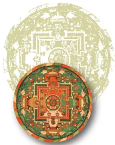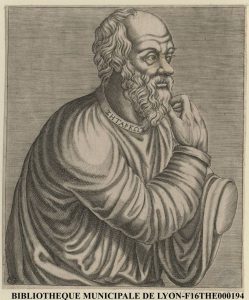Review of: Henry Abramovitch, Why Odysseus Came Home as a Stranger and Other Puzzling Moments in the Life of Buddha, Socrates, Jesus, Abraham, and Other Great Individuals, Asheville, North Carolina: Chiron Publications, 2020.
Jung Journal 14 (4), Pages 149-151. 2020 | Published online: 08 Dec 2020
Abstract: Jungian analyst Henry Abramovitch’s book is a set of meditative essays that seeks to explain the most mysterious moments in the lives of the cultural heroes mentioned in the book’s title. Each chapter begins with the word Why? and addresses a riddle in the subject’s biography. The riddle is partially answered by examining the psychological formation, traumas, transformative insights, and memories that we know about this person’s life and his or her mind. A wide-angle anthropological and comparative perspective is always in evidence, along with the strong impact of Jungian theory
This volume of tender and insightful essays on mysterious moments in the world’s most famous stories is the work of an analyst-anthropologist who is also my friend. I grew up thinking that all doctors must be, by nature, humanists—that is, they must be like my father, a cardiologist gifted with remarkable diagnostic abilities, a talent for listening, and an intuitive understanding of the suffering of others. Only much later did I discover, to my chagrin, that some doctors don’t quite fit that model. Henry Abramovitch, however, has both the healing touch and the Renaissance humanist’s breadth of vision that I once expected to be the norm.
Would you like to know why Arjuna, the hero of the Sanskrit Mahabharata epic, had a mental crisis right before he was supposed to go into battle with his family’s enemies? This book explains why Arjuna at first refused to fight. What about Socrates’s last words—about repaying a debt, the cock he had once promised the god Asclepius but never delivered? Why did he end his life on this note? Why was the Buddha’s final teaching a hand gesture in total silence? Why did Jesus curse the fig tree? Why did Lot’s wife turn to look back and, as a result, become a pillar of salt? And perhaps most troubling of all—why was Abraham prepared to kill his son at God’s command, for no intelligible reason?
Every chapter begins with the word Why? I am reminded of the great Hungarian poet Deszö Tandori’s poem, “The Most Superfluous Question Is Nevertheless ‘Why’?” The true punch of that line lies in the “nevertheless.” But Abramovitch, in a reflective Jungian-analytic mode, richly informed by comparative data from cultures around the world, redeems the “why?” Sometimes there are good answers that shed light on a biography, a mental world, the ethical character of a profound, and usually profoundly tormented, person.
I’d like to offer an example of that necessary “why?” from my own experience. Once two young Israeli actors, just out of the army, came to see me. They had discovered the tantalizing depths in the Biblical story of Abraham’s binding of Isaac (Genesis 22), the Aqedah, and they were asking anyone who had any particular link to that story about its meaning—that is, how could God ask Abraham to sacrifice his son and, even more troubling, how could Abraham agree to this cruel demand? I had just finished writing a book about an Aqedah-type story in India, and they came to me straight from a meeting with the great Israeli philosopher Yeshayahu Leibowitz, a deeply religious man with the public role of a fierce prophet. Recounting the meeting to me, they reported asking him, “Professor Leibowitz, how do you understand this story?”
Known for a certain cut-and-dried vision of God and the Jews, he replied, “What do you mean? It’s very simple. God wanted to test Abraham’s faith, and Abraham passed the test.”
“No,” said the two young men, “that’s not what we’re asking you. Suppose God came to you in a dream and said, ‘Take your son, your only son, whom you love, into the backyard and sacrifice him to me.’ Would you do it?”
Leibowitz didn’t hesitate for a moment: “I never, ever, have dreams.”
This anecdote sticks in my mind as a rather shocking failure of the imagination—especially since, in my world and in Abramovitch’s, dreams are never trivial. Abramovitch gives his own nuanced answer to the same question. It has a lot to do with Abraham’s relation to his own father, Terah. Jung is quoted in a pointed aside: “Nothing has a stronger influence psychologically … on their children than the unlived life of the parent.” In any case, the mostly unconscious and usually far from tranquil continuity of father to son lies at the heart of the Aqedah story. More specifically, we have the interesting, paradoxical question of “how does a revolutionary assure his sons be loyal to a tradition of disloyalty?” (110). Look what happened to Freud and Jung. According to Abramovitch, the Biblical story tells us that an act of potential violence, on the cusp of life and death, may be the only way to resolve the intergenerational tension, to spark psychic change, and allow both father and son to recognize and own a critical element in selfhood. Abramovitch calls this “creative trauma.” The underlying logic, he says, is of giving everything up in order to get at least something, or maybe everything, back. It may be the only way to have anything.
The story that gives this book its title comes from the end of the Odyssey, when the exhausted, long-suffering hero, the man of many tricks who has only one trick left to play, finally arrives in Ithaka. He has changed in the course of his ten years of wandering; he looks different than he did before he left for Troy, and now he is also disguised as an aged beggar. The final books of the Odyssey are altogether remarkable; the disguise, crafted by Odysseus’s patron goddess, is far from impenetrable. In a long conversation (in Book 19) between the gruff beggar and Penelope, filled with double entendres and other hints, it becomes clear that Penelope knows who this man really is, though she may not know that she knows. He wants it like that; he wants her to know without fully knowing. Each of these two lovers needs to put the other to some ultimate test. Are you really the woman I left twenty years ago? Do you still love me? What are all these other men doing in my house? Or, on her side: Could you be my husband? You don’t look like him. You are changed. What took you so long? How many people have you killed? Can I still love you? Compared to these issues, the business of killing the dastardly suitors is child’s play. And at the heart of the moving duet of these two lovers finding their way back to one another lies an organizing logic: “Only if Odysseus is masked can he be unmasked” (39). This insight is the beginning of a moving meditation on homecoming that takes us from the Chinese poet Li Po and the Japanese haiku-master Basho to Talmudic sources and the Bible and finally back to Ithaka, that is, back home.
These essays are friendly and intimate, almost as if the author knew personally, maybe from long analyses, the protagonists he writes about. It makes me wonder if Socrates would have been a good analysand. Meanwhile, as we ponder that question, the crisscrossing references to other worlds, far from being unsettling, add a dimension of wry delight. Madagascar, where Abramovitch did fieldwork, turns up from time to time. Also the New Guinea Highlanders and the Wodaabe people of the Sahara. There is a witty interlude on the fascinating question of why men wear neckties (believe it or not, this is appended to the discussion of Socrates and the rooster). But in some ways the most moving chapter is about silence. It is enriched by clinical experience: “There are patients with a dark talent for silence, who come time after time yet remain silent” (68). Not surprisingly, we read here about eloquent silences and recalcitrant, angry, hopeless silences; also about hearing, or possibly failing to hear, the crucial, unspoken question.
So why did the Buddha refuse to speak in his last teaching? His pupils were waiting eagerly for his words. But the Buddha, the tradition says, merely picked a lotus from a muddy pond and held it up for them to see. Even much earlier in his life, after his enlightenment, the Buddha adamantly resisted any demands to answer questions such as “Does the self exist?” So the final teaching was consistent with an earlier drive toward insight that goes beyond words and propositions. There is a Zen story about a dying master whose students were gathered around his bed; it was time to choose his successor. The master asked each of the students what he had learned in the course of years of study. One by one, they said this and that—none of it very satisfying. Then it was the turn of the youngest and slowest of them all. He touched a teacup sitting on a table next to the master’s bed and moved it a millimeter forward. “Is that all?” asked the master. The student moved the cup back to where it was before. The successor had been discovered.
But it’s a little too easy, and even a little romantic, to leave things at that, with silence always winning in the contest with the supposedly inadequate spoken word. I once heard the Dalai Lama answer a question about whether language can convey truth or not. He said: “We Buddhists believe that truth is ineffable—but not very ineffable.” It takes a wise man to give such an answer, which might well apply to Abramovitch’s book as well. Like a good analysis, it leaves many open doors that lead to other open doors. Not everything can or should be defined or explained. The real surprise lies in how much that is new and illuminating can be articulated, after all, by a sensitive thinker in relation to the “great individuals” listed in the charming, old-fashioned title of this book.
DAVID SHULMAN, PhD, is professor emeritus at the Hebrew University, Jerusalem. A specialist in South Indian languages and literatures and an aficionado of classical Carnatic music, he was trained in Tamil by John Ralston Marr at the School of Oriental and African Studies, London (PhD 1976). His books include More than Real: A History of the Imagination in South India (Harvard University Press, 2012). Correspondence: ddshulman@yahoo.com.

